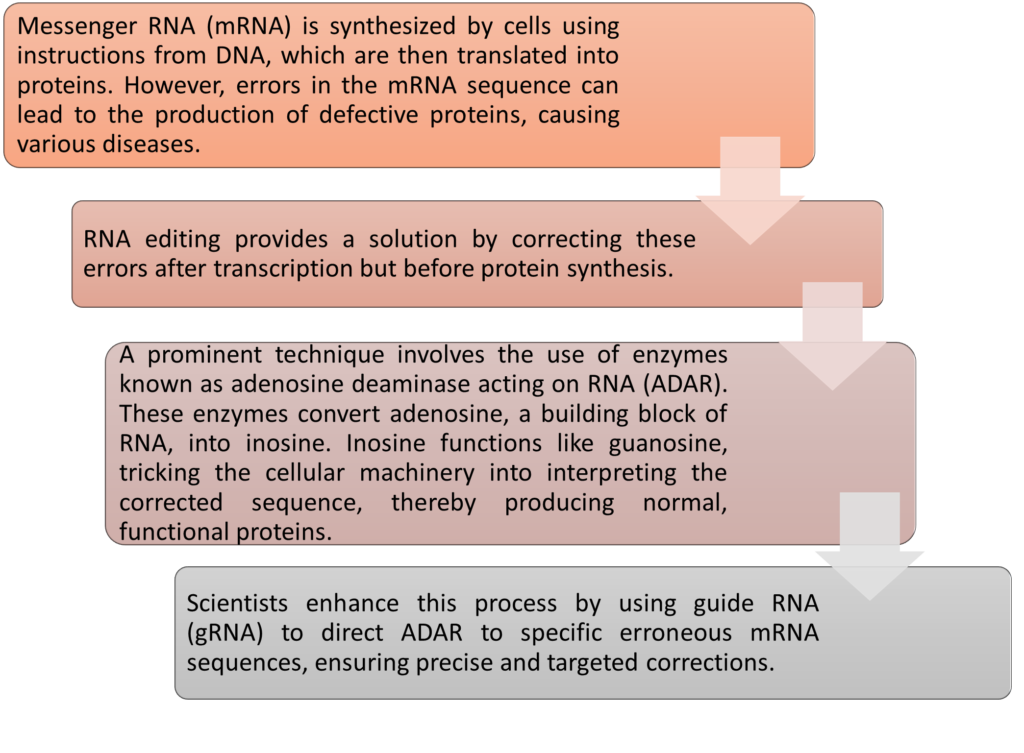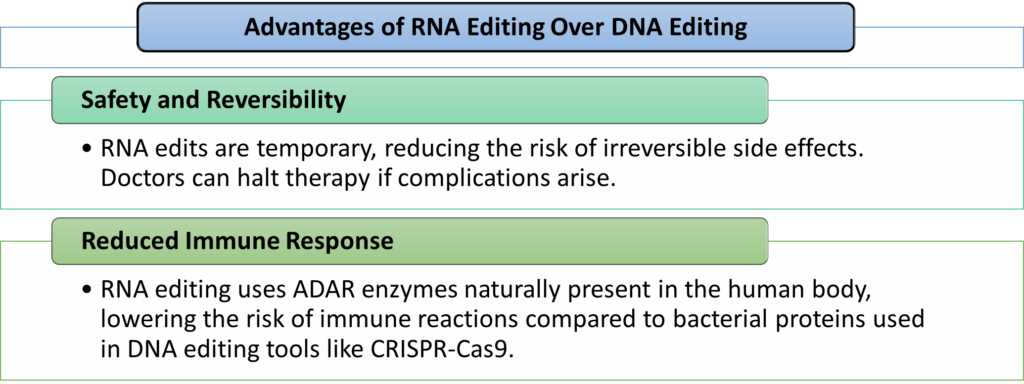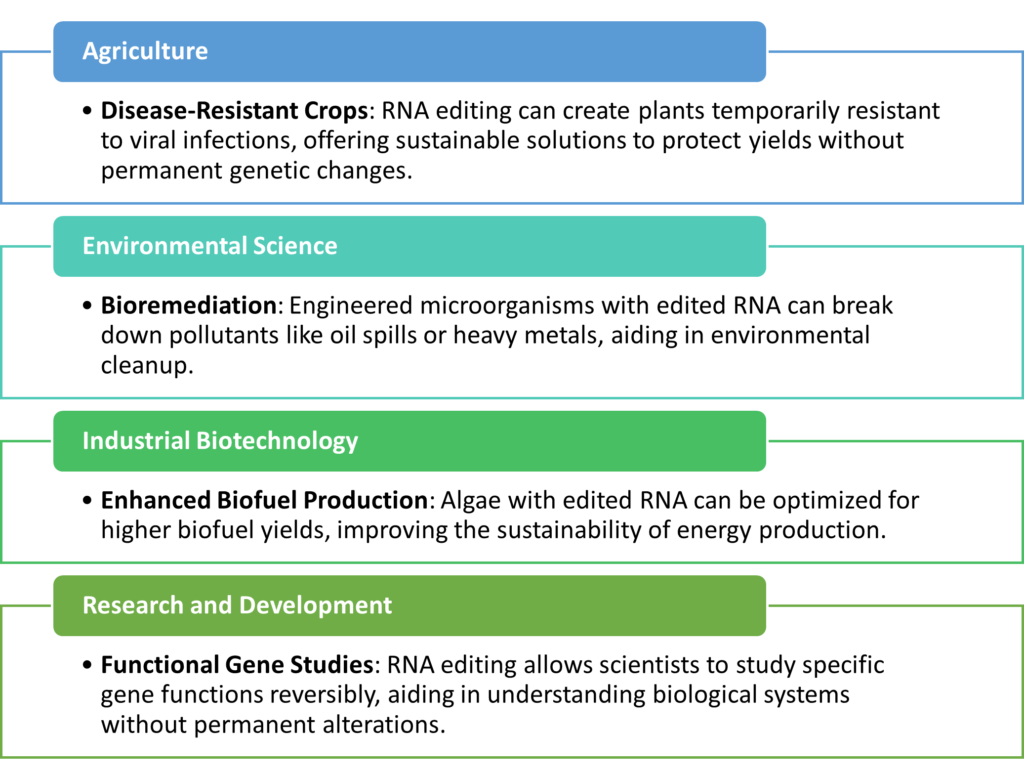(General Studies III – Science & Technology section – Science and Technology- Developments and their Applications and Effects in Everyday Life.)
- RNA editing, a transformative tool in genetic medicine, enables temporary corrections to RNA sequences, offering an alternative to permanent DNA editing.
- With the potential to treat genetic disorders safely and reversibly, RNA editing marks a new era in precision medicine.
| How RNA Editing Works |

Recent advancements in RNA editing showcase its potential in treating severe conditions. Wave Life Sciences achieved a breakthrough by correcting single-point mutations in the SERPINA1 gene to treat alpha-1 antitrypsin deficiency (AATD), normalizing protein levels. Companies like Korro Bio and ProQR Therapeutics are developing RNA-based therapies for Parkinson’s and cardiovascular diseases.

Potential Applications –
- Neurological Disorders: Targeting mRNA transcripts associated with conditions like Parkinson’s disease and amyotrophic lateral sclerosis (ALS) to correct pathogenic mutations.
- Cardiovascular Diseases: Modifying RNA to address genetic mutations leading to heart conditions, potentially offering treatments for inherited cardiomyopathies.
- Oncology: Editing RNA in cancer cells to correct aberrant splicing events or mutations, thereby inhibiting tumor growth and progression.
- Metabolic Disorders: Correcting RNA sequences in metabolic pathways to treat conditions like phenylketonuria or familial hypercholesterolemia.
- Ophthalmic Diseases: Addressing genetic mutations in retinal cells to treat inherited eye disorders such as retinitis pigmentosa.
Limitations –
- Off-Target Effects: Unintended edits can occur, leading to unforeseen consequences.
- Delivery Challenges: Efficiently delivering RNA editing components to specific tissues remains a significant hurdle.
- Transient Effects: RNA edits are temporary, necessitating repeated treatments to maintain therapeutic benefits.
- Immunogenicity: The introduction of exogenous RNA or proteins can trigger immune responses, complicating therapy.
- Ethical and Regulatory Concerns: The long-term effects and ethical implications of RNA editing require thorough evaluation before widespread clinical adoption.
Future Prospects –
- The RNA editing market is still in its infancy, with at least 11 companies actively pursuing this technology. Major pharmaceutical players like Eli Lilly and Roche have shown interest.
- Continued research and clinical trials promise to integrate RNA editing into mainstream medical practice, addressing a range of genetic and acquired conditions.

| RNA editing represents a groundbreaking advancement in precision medicine, with the potential to revolutionize genetic therapy. While challenges remain, its safety, flexibility, and broad applicability position it as a pivotal tool in future healthcare solutions. |


